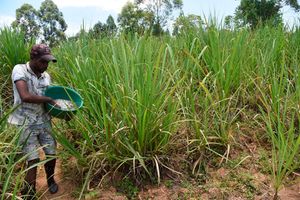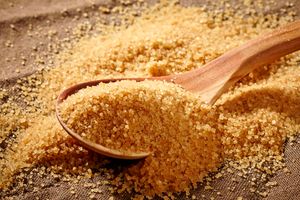
A tractor transports sugarcane to Mumias Sugar Company in the past.
The quantity of sugarcane delivered to factories for milling dipped to a 17-month low of 398,910 tonnes in April 2025, coinciding with disruptions linked to a chaotic handover of State-owned sugar mills to private investors on lease terms.
Deliveries in April were the lowest since November 2023 when 296,170 tonnes of the raw material were hauled in for milling.
Latest data from the Kenya National Bureau of Statistics (KNBS) shows April sugarcane deliveries were a sharp drop compared to the previous month where 715,530 tonnes were supplied to factories.
The dip was reflected in reduced volumes of sugar produced locally in April, standing at 36,194 tonnes, which marked the lowest output since the 25,179 tonnes produced in November 2023, casting doubts on ambitions to make Kenya a net sugar exporter by 2027.
The suppressed supply of cane in April came months after a sustained production glut was witnessed last year, giving rise to successive cuts to farmer earnings fueling disquiet and threats of a supply boycott.

A tractor delivers sugarcane to a sugar factory in the Nyando sugar belt.
The dip also came as the state geared up towards leasing out of four public sugar factories to private firms, amid rising concerns from farmers who flagged the process as being shrouded in secrecy as details of targeted investors remained scant.
The leasing, spearheaded by the Kenya Sugar Board and a host of other government agencies, involves Nzoia, Chemilil, Sony, and Muhoroni sugar companies.
In April, workers in the state-owned millers staged protests in opposition to the leasing plans, with the Kenya Union of Sugar Plantation and Allied Workers (Kuspaw) maintaining that new investors must honour collective bargaining agreements (CBAs) between factories and unions. Kuspaw demanded that the CBAs be settled before the takeover of the factories.
A parliamentary committee also opened an investigation into the leasing of struggling public sugar millers as lawmakers demanded answers on faces behind private entities that took control of the process.

Loaders hang on to a tractor transporting sugarcane to Mumias Sugar Factory in February 2018.
The National Assembly Committee on Agriculture, Livestock, and Fisheries chaired by John Mutunga will seek to unravel several issues that MPs have raised regarding the process. The Cabinet in October 2023 endorsed the write-off of Sh117 billion in debts public sugar mills owe the state following parliamentary approval before leasing the process to private investors.
Sugarcane growing areas saw increased output last year due to favourable weather experienced in the country since October 2023, coupled with state-backed fertiliser subsidy, which helped raise productivity.
KNBS data indicates that last year, total sugarcane supply to factories by local farmers jumped 70.2 percent to 9.3 million tonnes up from the 5.5 million tonnes recorded in 2023.
An oversupply of sugar in the local market slashed imports of the sweetener by nearly half in the third quarter of 2024, with KNBS indicating that the shipments dropped from 162,189.1 tonnes in the quarter to September 2023 to 88,372 tonnes in a similar period last year.







